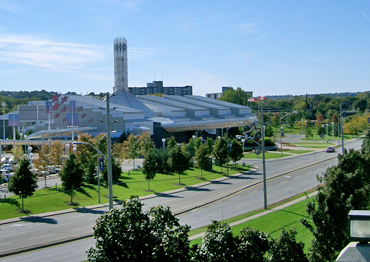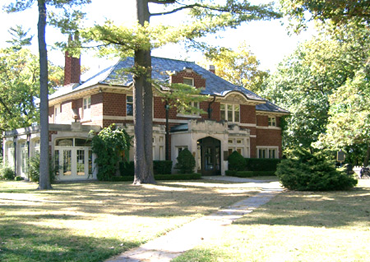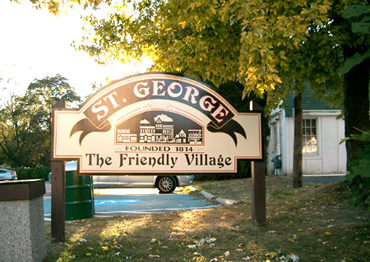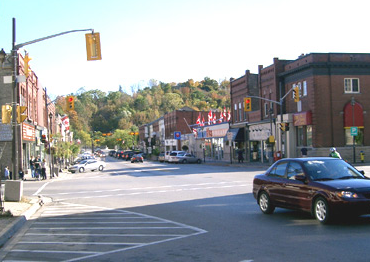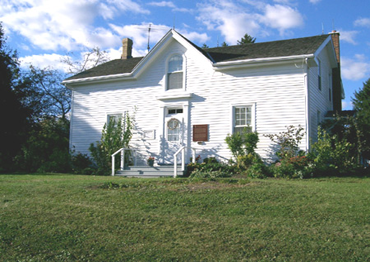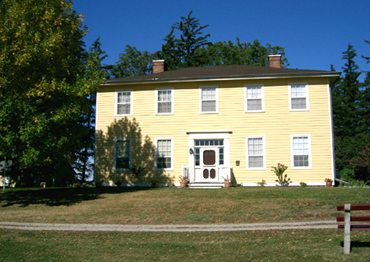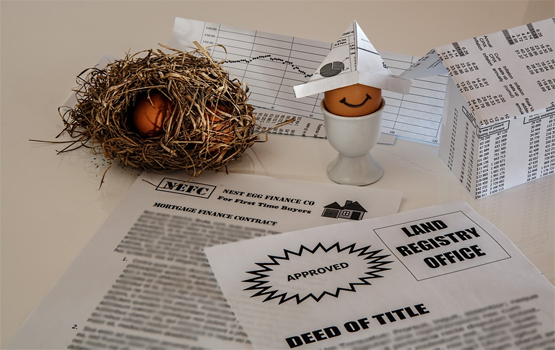Type of Mortgage
So, you've decided that homeownership is right for you. For all but the fortunate few, buying a home is synonymous with taking on a mortgage. A mortgage is a security for a loan on the property you own. It is repaid in regular mortgage loan payments, which are usually blended payments. This means that the payment includes the principal (amount borrowed) plus the interest (the charge for borrowing money). The payment may also include a portion of the property taxes.
Most of the payments on a mortgage loan are for interests the lenders charge for letting you use their money. The longer you take to repay your mortgage, the more you will pay out in interest. On a mortgage which is paid off over 25 years, depending on the interest rates charged on your mortgage, the total amount of your payments could be twice as much as the amount originally borrowed, or even more.
There are many different types of mortgages. If you don't have the 20% down payment for a conventional mortgage, you can get a high ratio mortgage, combined with mortgage default insurance, that allows for a smaller down payment.
Although mortgage loans allow people to buy homes sooner than they ever could if they had to save to meet the purchase price, these loans can be costly. Now you have to determine which type of mortgage you want.
Conventional Mortgage
The buyer can borrow up to 80% of the purchase price of the value of the property, whichever is less. The buyer has to pay 20% down. A congenital mortgage cannot exceed 80% of the value of the property.
High Ratio Mortgage
If down payment is less than 20% of the purchase price of the value of the home, buyer must pay mortgage default insurance. The maximum amortization period for mortgages with mortgage default insurance is 25 years. Mortgage default insurance is only available for high ratio mortgages if the purchase price of the home is less than $1 million.
Open Mortgage
Allows borrowers to repay all or part of the total amount of their mortgage at any time without penalty (prepayment charge). The interest rate on an open mortgage is usually higher than on a closed mortgage with a comparable term length. Because of flexibility an open mortgage may be a good choice for borrowers who plan to sell their homes in the near future or intend to make large prepayments.
Closed Mortgage
Usually have lower interest rate than an open mortgage with a comparable term length, but it lacks the flexible features of an open mortgage. Closed mortgage contract will usually include prepayment privileges. Prepayment privileges are subject to conditions, which vary from lender to lender. For example, one lender might let you make a lump sum payment equal to 10% of the original mortgage loan every year, while another might only let you pay down 20% every year. Some lenders might also allow you to increase the amount of your regular payments. Closed mortgage is a good choice for those who want the security of knowing their monthly payment is fixed for a longer term. Keep in mind that if you want to change your mortgage agreement during the term, you will usually have to pay a prepayment charge to break your mortgage agreement.
When you apply for a mortgage, lenders may offer you options with either fixed or variable interest rates. Some lenders also offer a "hybrid" option that combines fixed and variable portions in the same mortgage. The interest rate option (fixed, variable or hybrid) is decided separately from the mortgage type (open or closed).
Fixed Interest Rate Mortgage
The interest rate and the amount of regular mortgage payments are fixed and remain the same for the entire term of the mortgage. Borrowers know in advance the amount of interest they will have to pay (assuming they don't make any prepayments), and therefore how much of the original loan amount will be paid off during the term.
Variable Interest Rate Mortgage
The interest rate can increase or decrease during the term of the mortgage and varies with changes in market interest rates. Borrowers usually have option to decide how changes in interest rate affect their payments which can be fixed or adjustable. The interest rates on variable rate mortgages are often lower than on fixed interest rate mortgages with the same term length when you sign your mortgage agreement. This may make variable interest rate mortgages attractive in the short term.
Hybrid Mortgage
In this combination mortgage, one part of the mortgage is financed at a fixed rate and other part is financed at a variable rate. The fixed portion gives borrower partial protection in case interest rates go up, and the variable portion provides partial benefits if rates fall. The portions may have different terms. For example, a hybrid mortgage may include a two-year term for the variable portion and a three-year term for the fixed portion. Hybrid mortgages that include portions with different terms may be difficult to transfer to another lender.
Payment Frequency
You can spend approximately the same amount of money on your mortgage each month and still save money by choosing an accelerated option for making payments.
Most mortgages now come with the standard payment options; this means you can pay your mortgage at a frequency that matches your cash flow - weekly, bi-weekly semi-monthly or monthly. Accelerated weekly and accelerated biweekly payments can save you thousands, or even tens of thousands in interest charges, because you will pay off your mortgage much faster using these options.
The added benefit of the accelerated weekly and bi-weekly payments is that by dividing a regular monthly payment into two or four respectively, and deducting it at the new interval, an extra payment a year is made directly against principal. The surprising effect of this one extra payment a year is to reduce the amortization of the average mortgage by up to 6 years, with enormous savings of cash at the end of the mortgage term.
HELPFUL INFORMATION:
- Arranging Your Mortgage
- How a Lender Makes Decision About You
- Your Credit Score
- Your Down Payment
- How to Save for a Down Payment
- Goverment Programs Available for Home Buyers
- Get Preapproved for Mortgage
- Mortgage Calculators
- Mortgage Insurance
YOUR CREDIT SCORE
Credit scoring model seeks to quantify how likely the consumers are to pay off their debt without being late. The more your credit file demonstrates that you pay your debt on time, the more desirable you become as a potential customer. The higher the client's score is, the less likely they are to default on their loan.
Read more...
How to Protect Yourself
Consumer Protection Ontario is an awareness program from Ontario's Ministry of Government and Consumer Services and other public organizations, known as administrative authorities, that promote consumer rights and public safety. The ministry and these administrative authorities enforce a number of Ontario's consumer protection and public safety laws, investigate alleged violations and handle complaints. Visit their website and learn more about Consumer Protection Ontario and how to protect yourself.
Buyer Info
Since choosing a right property to buy starts with needs and desires and finishes with a sizable portion of your earnings used for paying for it, it's important to ensure that the property you choose both meets your needs and is a good "fit" with your financial situation.
Read more...
Mortgage Info
Regardless of how certain you are that you will get mortgage, it is always good idea to get pre-approved from the mortgage lender of your choice. This will officially address any questions about your eligibility, rate, terms and it will enable you to better negotiate for the property of your choice.
Read more...
REAL ESTATE TIPS
Discover Our Community...
